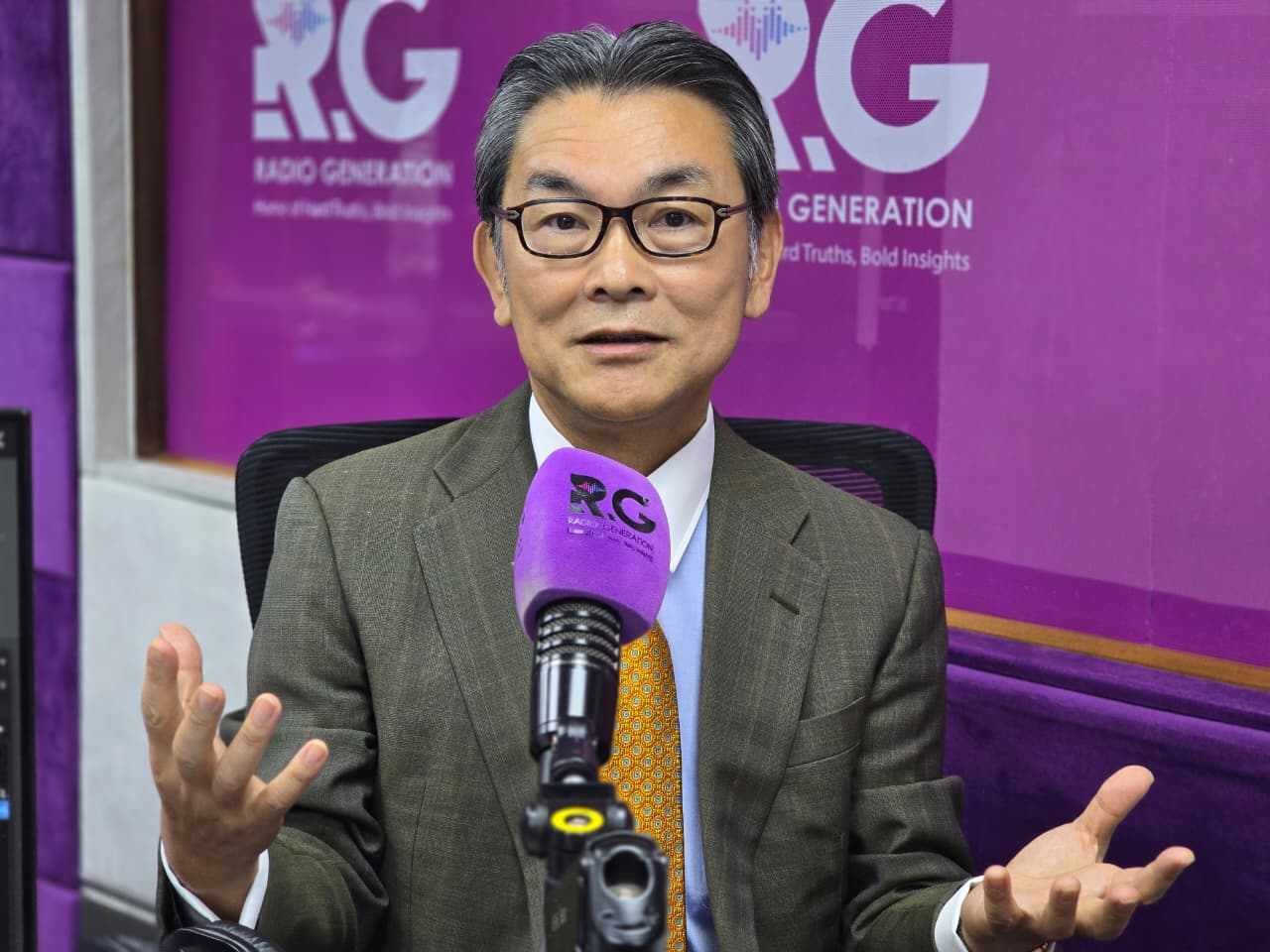Japan has maintained a strong and long-standing partnership with Kenya, supporting the country’s development across infrastructure, energy, agriculture, and health for more than six decades, Japanese Ambassador to Kenya Matsuura Hiroshi has said.
Speaking in an interview with Radio Generation, Hiroshi traced the cooperation back to Kenya’s independence, noting that the collaboration has grown step by step to address the country’s national development needs from a long-term perspective.
“Well, the history of the cooperation between Kenya and Japan is very long. It started at the year of your independence, 1963 and then the following year, 1964, the first dispatch of the Japanese experts for technical cooperation was made,” he said on Friday.
He added that Japan began sovereign loans in 1966 and grant assistance in 1974, steadily expanding support to multiple sectors vital for Kenya’s growth.
Ambassador Hiroshi emphasized that most development projects are initiated by Kenyan requests, with Japan responding to support national priorities.
A key example is the Japanese Overseas Cooperation Volunteers program, similar to a Peace Corps, which has seen 1,859 young Japanese volunteers work in Kenyan villages to support local development.
“This sort of soul touching is the basis of and the essence of development assistance, so that we are very much proud about this number,” Hiroshi said, highlighting the people-to-people contact that inspires local communities.
Education and human capacity building remain central to Japan’s support.
The Japanese government has provided scholarships for 350 Kenyans at undergraduate, graduate, and PhD levels, while short-term training programs allow Kenyans to gain knowledge and skills in Japan before returning home to contribute to national development.
“Many, many leaders are the products of education in Japan and use that knowledge for the development of Kenya,” Hiroshi said.
The ambassador also noted Kenya’s strong foundation in human resources and high education levels, with young Kenyans increasingly aspiring to pioneer in sectors such as manufacturing, finance, creative industries, and digital communications.
“It ultimately depends on the strategy of individuals. They want to be pioneering in the area of manufacturing? Right? If they do, of course, Kenya can do it,” he said, stressing the role of ambition and skill in driving development.
In August, President William Ruto attended the 9th Tokyo International Conference on African Development (TICAD 9) in Yokohama.
According to State House, Japan's longstanding partnership with Kenya has grown to more than Sh600 billion, making Kenya the largest recipient of Japanese aid in Africa.
“The visit is expected to consolidate Kenya–Japan relations by expanding opportunities in trade, investment, and development cooperation,” the statement read.
The discussions centered on major infrastructure projects such as Mombasa Port's expansion, Mombasa Port Area Road Development, and the Dongo Kundu Special Economic Zone.
Nairobi’s urban transport system also feature prominently.
Other areas of collaboration, which were highlighted, include agriculture, forestry, climate change, irrigation, and reforestation.

